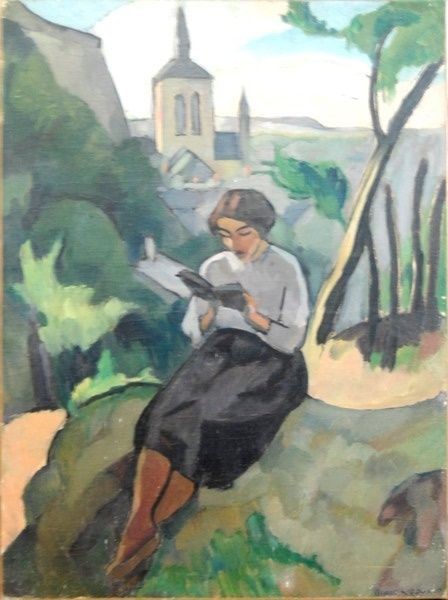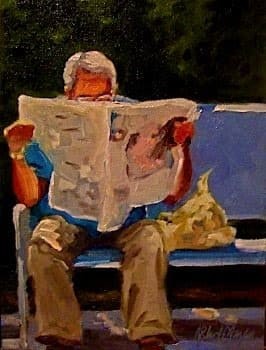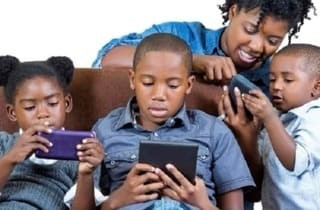Blast from the Past: This entry was first published June 18, 2017 and was re-posted on October 12, 2019. I thought it would be a good time to re-release this blog entry about practical steps schools could take to address “prior knowledge” for reading comprehension. Recently, Natalie Wexler released The Knowledge Gap, which is getting a lot of well-deserved attention. Although we definitely should not reduce the amount of reading instruction to make way for some new curricular initiative, we definitely should rededicate ourselves to ensuring that kids know a lot about our world and that increases what they know about science, history, geography, literature and so on.
Teacher question:
E.D. Hirsch makes a compelling argument for the systematic teaching of essential knowledge in elementary school as the best way to close the achievement gap. Daisy Daidalou in her book, Seven Myths of Education, makes a similar argument for building a broad, but not necessarily deep, knowledge base in assumed knowledge to improve reading comprehension. First, is there a solid research base for their claims? Second, what are the implications for a middle school, especially one with many students who are lacking strong background knowledge? Thank you.
Shanahan response:
Research over the past 40 years or so has made it clear that the knowledge that students bring to a text—any text—will have an impact on what is comprehended or learned from that text. The more you know, the better your comprehension tends to be.
Studies have shown that prior knowledge influences comprehension in many ways. Most obviously it reduces the learning load. The more you already know about what an author is telling you, the less new information that you have to learn. That makes the reading task an easier one. (Of course, that can also lead us to overstate what it is that prior knowledge provides, since it can make it look like you learned a lot from a text when you really didn’t learn much at all.)
Knowledge (prior knowledge just refers to the knowledge that we already possess “prior” to reading a text) also helps us to draw inferences and to elaborate on what a text must have meant. It allows us to figure out ambiguity—when you don’t know what an author really meant prior knowledge is a great resource to turn to. It reduces processing difficulty during reading, as operating on items already in long-term memory is less demanding than operating on items from the text newly placed into working knowledge. And prior knowledge helps to improve long-term recall, since we can store the new knowledge that we gained from a text within the prior knowledge structures in memory that we already possessed prior to that reading.
No question about it—the more you know—the better that you tend to comprehend (correlational studies certainly support that). We use our knowledge when we read.
However, we don’t have experimental studies (or studies capable of showing causation) with this variable. What I mean is that we don’t have evidence that if you increase kids’ awareness of cultural literacy (such as Hirsch’s –and other’s--intriguing lists of social, historical, literary, and scientific touchstones) that the students’ reading scores consequently improve. It makes sense that they would—the more we know the better we tend to comprehend—and, yet, no direct proof. Just correlations. Lots of correlations.
Given that, I wouldn’t drop direct lessons in reading skills and strategies in favor of teaching science, social studies or the arts.
But, like most scholars, I an persuaded that American children don’t know enough, and that increasing their knowledge about the world—whether or not it directly enhances reading comprehension—would still be valuable. Surveys routinely reveal our collective ignorance about science, government, current affairs, history, literature, and geography, and television seems rife with shows that revel in this ignorance (e.g., Jay Leno’s Jaywalking routine, or “Are You Smarter than a 5th Grader?”).
Personally—without research evidence—I don’t see increasing general world knowledge as a certain way of enhancing reading achievement; at least not in the same way that I think improved phonics or reading comprehension lessons are likely to. But I do believe that we should take knowledge more serious in schools, even within the literacy curriculum at all grade levels.
- What kids read matters. There are good arguments for the use of decodable texts within decoding lessons and beginning reading materials necessarily have to be simple to facilitate early reading development (Grades K-1). However, beyond these specific limitations, there is little excuse for not using reading materials that expose children to classical literature (e.g., Fairy Tales, Goodnight Moon, Where the Wild Things Are), or to rich content about geography, history, science, social science, and other subjects. Just because it is a reading lesson, there is no reason that the content of the texts one is practicing reading with can’t be rich in information (and the same can be said for the books that are read to children in the classroom). Check out your own middle school reading curriculum: how much opportunity is there for kids to enhance their science, social studies, or math knowledge? We often tell content teachers to expand their instruction by showing kids how to read like a scientist or an historian. Perhaps they should be telling us how to enhance our literacy curriculum by increasing students’ exposure to particular content from their fields of study. (I’m a reading guy, but I think that is a good idea).
- Kids should learn what they read. Too often the emphasis of a reading lesson is so much on the reading skill or strategy that the opportunity to expand children’s understanding of their world is lost. If kids are going to spend the next three days reading and rereading a selection about Martin Luther King or why empathy matters or about children in Brazil—studying the vocabulary, answering questions, practicing fluency—there is no excuse for them walking away from those lessons not knowing who the Reverend King was, what empathy means, or where Brazil is. Reading lessons needs to have double outcomes: an improvement to reading ability and an increased knowledge about whatever was read. (When is the last time you tested kids on the content of the texts they were reading in reading class? I think we should do more of that.)
- Content instruction needs to be protected. Regular readers of this blog know that I promote increased reading instruction as a way of improving reading achievement. However, I not only place a minimum on the reading instruction time, I place a maximum on it, too. I do this to protect time for math, art, music, social studies, science, and so on. It is crucial that kids get instruction in all of those areas and that those subjects should both give kids additional opportunities to read and write, but also to expand their knowledge of the world. Low reading scores are not a good excuse for dropping social studies instruction.
- Encourage kids to read on their own time. One way a lot of us learn is by reading. Kids don’t read enough, but they can be induced and encouraged to read more away from school. Hook them up with books that they can read on their own, beyond what you do with them in school. Work with local librarians to identify hot books about science, the arts, and social studies and actively promote these with kids.
- Review matters. I understand the idea of a spiral curriculum, but I also fear that what kids walk away from such lessons may deliver the idea that it doesn’t matter very much whether they learn something or not (since they will be exposed to it again). Content lessons need to be taught with the idea that the facts matter and that we care whether students retain that information. That typically means that we need to do more review, revisiting content again and again.
- Encourage parents to help. Parents can help (or more accurately, some parents can help) by getting their kids magazine subscriptions or watching educational, nature, and current events shows with their children, or by encouraging the use of those kinds of Internet resources. There are many television shows that are great for building children’s knowledge (e.g., Arthur, Nature Cat, Wild Kratts, National Geographic) and many terrific websites that can help there too (e.g., Time for Kids; Here, There, and Everywhere; Learning Network, CNN Student News); encourage kids to watch and use these—advertise them in the classroom, and promote them with parents, too.
I suspect that our kids would read better if they knew more, so expanding kids’ knowledge of the world very well might promote higher literacy.
I also suspect that knowing more about the world will foster curiosity, adventure, a greater sense of community, environmental responsibility, health, patriotism, and even, healthy skepticism—so it definitely isn’t all about reading.
However, that doesn’t mean that we don’t have to teach kids how to read about these things.







Comments
See what others have to say about this topic.